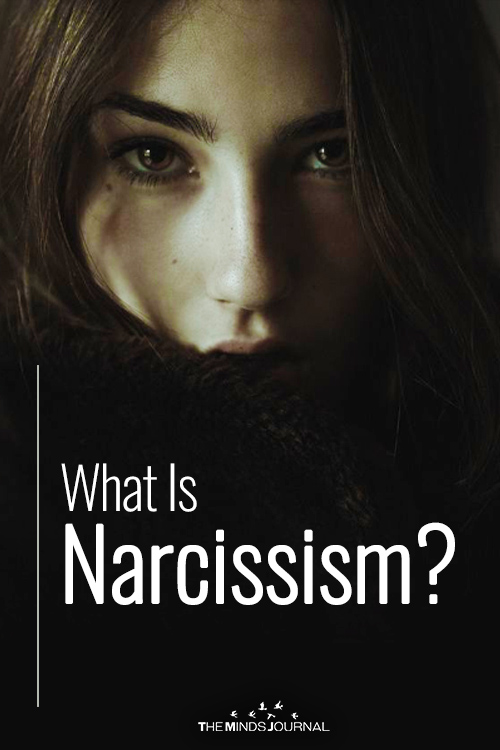The term narcissism is used a lot these days to describe someone who is full of themselves. However, narcissism is not self-love. Narcissistic personality disorder is a personality disorder that can affect the lives of all the people who are in a relationship with a narcissist. It is an inflated self-image that is rooted in intense feelings of insecurity.
What is it?
Possible causes of NPD.
Is recovery possible?
All About Narcissism
Narcissistic Personality Disorder is a pattern of deviant behavior which is abnormal and considered unacceptable by society in general.
People with NPD often come across as arrogant and conceited with a tendency to look down on others who they perceive as inferior.
A narcissist often displays a sense of entitlement demanding admiration and special treatment. When they don’t receive such treatment, they may become impatient and angry.
Underneath the narcissist’s outward portrayal of confidence and superiority, there are often deep-seated insecurities and self-loathing where they know that they don’t quite match up to that image of perfection. As a result, they will not respond well to any perceived criticism and often react with rage.
Narcissists are renowned for having problematic relationships. Their main focus is on themselves, their wants, and their needs. They are self-centered and egotistical and like to be the focus of attention. The needs of those around them are not really their concern.

The narcissist often appears to be charming to those who don’t really know them and by that I mean, those who don’t live with them, work with them, or have known them for a relatively short period of time.
The longer you know a narcissist, the more apparent their unacceptable behavior becomes. They will ignore, denigrate and slander others in order to boost their own position and boost their insatiable ego.
A very common trait of the narcissist is a complete lack of empathy. They either cannot or will not put themselves in someone else’s shoes or try to understand someone else’s pain or distress. They use people for their own ends, to get what they want when they want with no regard for anyone else’s feelings or who gets hurt in the process.
Related: Traits of a Narcissist and A Psychopath And What Makes Them Different From Each Other
Their envy speaks for itself. They don’t like to see others who are more popular, doing better, making more money or being happier than they are themselves. Their envy often results in a smear campaign where the narcissist will lie and gossip in an effort to destroy the other person’s reputation.
The Mayo Clinic (Nov 2014) states that ‘Many experts use the criteria in the Diagnostic and Statistical Manual of Mental Disorders (DSM-5), published by the American Psychiatric Association, to diagnose mental conditions. This manual is also used by insurance companies to reimburse for treatment.
DSM-5 Criteria For Narcissistic Personality Disorder Include These Features:
- Having an exaggerated sense of self-importance
- Expecting to be recognized as superior even without achievements that warrant it
- Exaggerating your achievements and talents
- Being preoccupied with fantasies about success, power, brilliance, beauty or the perfect mate
- Believing that you are superior and can only be understood by or associate with equally special people
- Requiring constant admiration
- Having a sense of entitlement
- Expecting special favors and unquestioning compliance with your expectations
- Taking advantage of others to get what you want
- Having an inability or unwillingness to recognize the needs and feelings of others
- Being envious of others and believing others envy you
- Behaving in an arrogant or haughty manner
Diagnosis is by trained mental health professionals. To be diagnosed with the rather unflattering label of narcissistic personality disorder, one must possess at least five of the traits mentioned.
A common and very important trait, which is not mentioned in this list, is that of little or no empathy. There are many who believe that as this is such a key aspect in people with NPD that it should have been included in the diagnostic criteria.

Possible Causes Of NPD
It is not known what causes NPD. However, there are many theories which include:
- Overvaluing as a child
- A learned behavior
- Genetics
- Abuse in childhood
The cause is most likely complex with the possibility of more than one factor being at the root of this disorder.
Is Recovery Possible?
For a narcissist to seek help, they need to see that the problems lie within themselves.
Unfortunately, narcissists rarely blame themselves when things go wrong. They do not hold themselves accountable and they will shift the blame onto others for the very things that they do themselves.
Many experts will say that a narcissist is most likely to seek help when they have hit rock bottom, perhaps when they have been abandoned by a long-time partner or other family members.
Related: 9 Behavioral Traits That’re Common Amongst Survivors of Narcissistic Abuse
This question appears to be open to debate. Pathological narcissism is a difficult disorder to treat. Recovery from NPD would be a lengthy process requiring the individual to remain in therapy for a considerable length of time.
Herein lies the difficulty….
Will a narcissist remain in therapy for as long as is required?
Will a narcissist acknowledge their therapist’s expertise?
I have known and read about narcissists in recovery over the short term. Some narcissists that I have spoken to will say that they have difficulty maintaining a change in their behavior for considerable periods of time and tend to slip back into their old ways.
Some experts have gone out on a limb saying that they believe change is possible whilst others disagree believing long term change is extremely unlikely if not impossible.
Written by Anne McCrea
Narcissistic and Emotional Abuse, Shattering the Illusion, now available on Amazon
References:
Mayo Clinic Staff, (Nov 2014), Mayo Clinic: Narcissistic Personality Disorder, [Online], accessed Feb 2016.
Written By Anne McCrea Originally Appeared In Narcissistic and Emotional Abuse












Leave a Reply